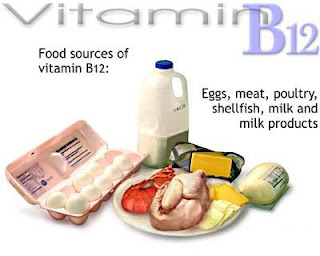Women are four times more likely than men to develop osteoporosis, or weak, porous bones. But a new study results indicate that a deficiency of vitamin B12 is associated with low bone mineral density in men, confirming similar previous findings in women.
Researchers funded by the Agricultural Research Service (ARS) reported the findings in the Journal of Bone and Mineral Research '(Journal of Bone and Mineral Research). The study was led by epidemiologist Katherine Tucker with the Jean Mayer Center for Human Nutrition Research on Aging (HNRCA for its acronym in English) maintained by the U.S. Department of Agriculture (USDA for its acronym in English) in Boston, Massachusetts. Tucker is director of the Research Program Dietary Assessment and Epidemiology.
While vitamin B12 deficiency has been linked to low levels of markers of bone formation, the mechanism behind the relationship is not known.
Scientists examined the relationship between blood levels of vitamin B12 and indicators of bone health measured in 2,576 men and women, ages 30 to 87 years, who participated in the Framingham Osteoporosis Study. They found that people with low B12 levels of 148 pmol per liter (pmol / l) were at greater risk of osteoporosis than those with higher levels. B12 blood levels lower than 185 pmol / l are considered "very low", according to some experts.
The study found that participants with B12 concentrations below 148 pmol / l had a mean bone mineral density significantly lower - at the hip in men and in the spine in women - those with concentrations of more than 148 pmol / l.
The range of symptoms of B12 deficiency include anemia, problems with balance and a reduction in cognitive ability. Osteoporosis usually progresses with no outward effect until a fracture occurs.
The recommended dietary allowance for vitamin B12 is 2.4 micrograms per day for both men and women. Low levels of stomach acid and aging can reduce the ability to absorb the vitamin. People over 50 are advised to consume fortified foods or supplements containing B12.
This study suggests that an adequate intake of vitamin B12 is important for maintaining bone mineral density. Animal protein foods such as fish, liver, beef, pork, milk and cheese are good sources of vitamin B12.
ARS is the chief scientific research agency of USDA.




